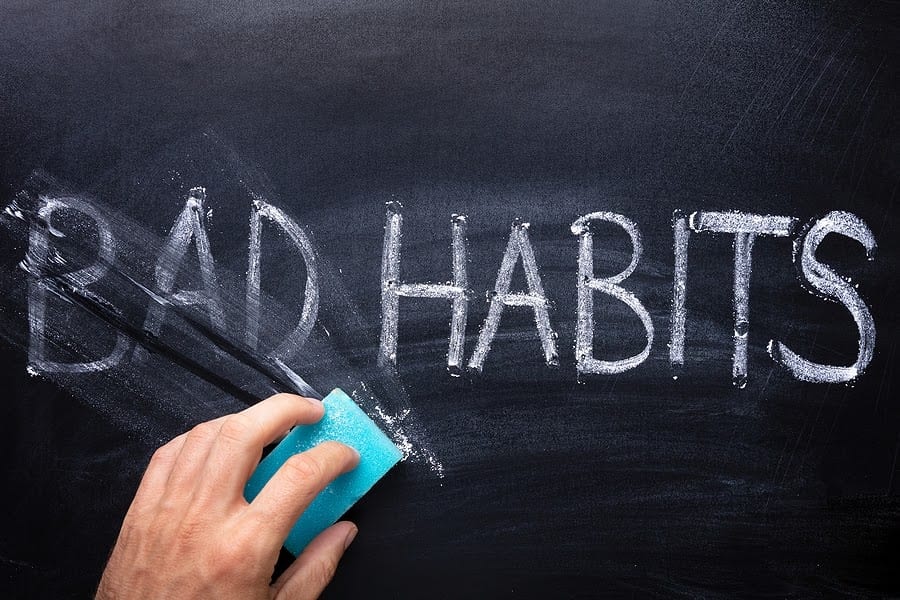Habits can make or break you in your life, so recognizing your bad ones – and the impact they have on you – is a start to improving your wellbeing. This is how to stop your bad habits:
- Recognize the Root: Underneath the surface of your bad habits are hidden motivations. These usually come in the form of negative emotions, like sadness or frustration; or physiological and psychological sensations like stress. If you’re aware that your responses to these sensations are coping mechanisms – like smoking due to stress for instance – this is the first step in understanding how to stop your bad habits. That moment you realize why you’re doing what you’re doing can help you better understand the root triggers, which in turn will help you recognize that your response does not need to be habitually negative.
- Understand That You Have Autonomy Over Your Choices: In keeping with the above point, it’s helpful to know that you have autonomy over your good and bad choices… at all times. Usually there is what’s called a signal that reminds you of your bad habit (in combination with the root trigger), and that signal drives you toward it. For example, if you’re struggling with overeating junk food, you might find that when you’re alone and bored, this environment signals to your brain that it’s time to indulge in excess. However, when that time comes, it’s not like someone’s holding a gun to your head and demanding you to eat two bags of chips; you’ve just convinced yourself that this signal means taking the easy, pleasurable route. To avoid this, while also using willpower and self-discipline, train your brain to connect the signal to a new, positive habit. From the example given, alone and bored could mean two things: overeat (bad habit), or work on your side hustle (good habit). In one study, participants chose the new habit 70% of the time when faced with this crossroad. However, that number dropped to 30% when they were faced with stress – which speaks to how important emotional control is.
- Be Willing to Leave Your Comfort Zone: If your bad habit is merely a comfortable coping mechanism, you must be willing to leave that comfort zone. And this can only be achieved once you realize the toll the habit is taking on your life. When the connection is made between negative consequences and comfort, you can then start taking small steps toward detaching from that state. Once again, willpower and self-discipline will be vital to your success; so every time you feel the urge to take the easy path, embrace the feeling of discomfort while keeping your end goal in mind. Be sure to start small with incremental steps every day because this will train your brain to become familiar with discomfort – rather than stopping all at once. However, if you choose to go cold-turkey, be aware that this is much more difficult but still achievable. So you’re either gradually or fully leaving your comfort zone; but both routes equate to the same outcome. Crucially important in understanding how to stop your bad habits.
- Think Longterm: Often when we engage with our bad habits, we like to place short term pleasure over long term consequences. But if you’re conscious of how your health or general wellbeing will be affected years from now, you may view your habit in a different way. It’s as simple as this: actions have consequences. This mindset should not be overlooked when prioritizing how to stop your bad habits.
